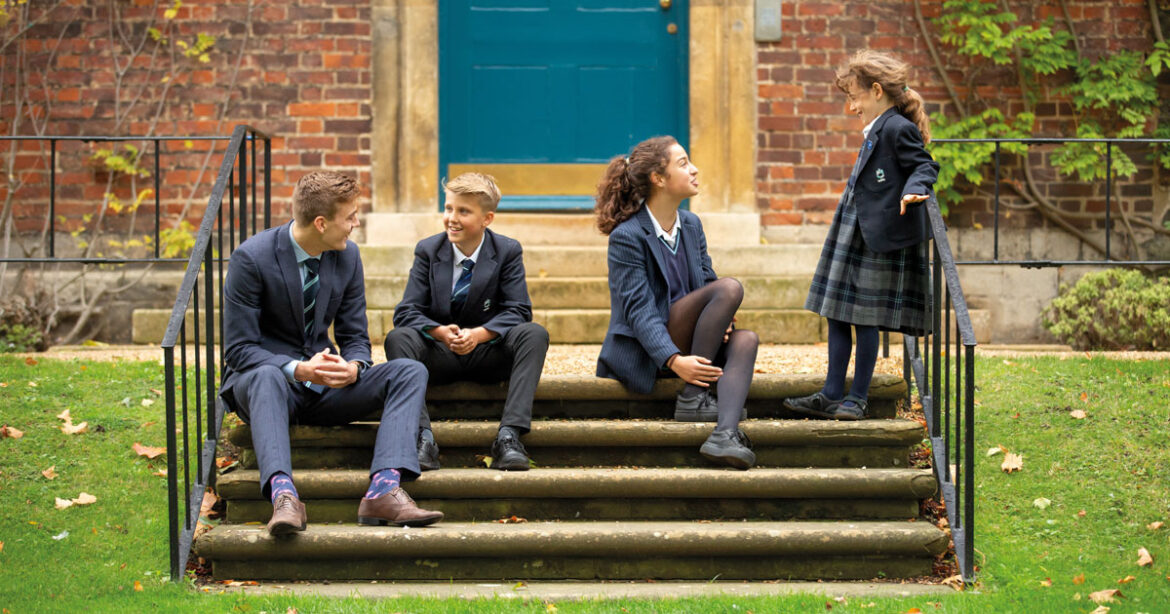Knowing which school to opt for is daunting – we guide you through it with these handy tips
1. Start with a checklist
All big decisions are easiest to make when you’ve got a list of priorities written down in front of you. Before diving into your school search, take stock of what’s important to you and your youngsters. “Parents know their child best,” says Nick Tappin, director of admissions and marketing at King’s Ely – a historic school just outside Cambridge, focusing on engaged learning and pastoral care. “Draw up a list of ideal requirements for your child’s school based on their passions and areas of opportunity.”
2. Ask for advice
To get the lowdown on local schools, look to those around you – who will have the greatest picture of what each institution is really like? “Talk to friends, family, neighbours and colleagues and find out as much as you can,” says Nick. “Real-life experiences – and not just hearsay – will be the biggest indicator as to whether a school is right for your child.”
3. Do your research
There are, of course, the ubiquitous prospectuses, brochures and websites to get to grips with, but how do you go the extra mile? Speak to the admissions teams, advises Nick. “How excited are they by your call? How closely matched are your ambitions with theirs? How many questions do they ask about you and your family? How keenly do they listen?”
4. Make the trip
When you’ve been eyeing up a certain school and are ready to make the application leap, be sure to then pop in first. “Nothing beats a visit during the school day to get a sense of whether you can imagine your child thriving in the setting,” says Mike Fish, headteacher at Marleigh Primary Academy, a newly opened school focusing on STEM subjects. “Visit the school on your own in the first instance, so you can ask questions and get a feel for what’s on offer without extended familial distraction,” adds Nick. “A chocolate-drizzled open day tour treat may appeal to the children, but it’s not a reason to choose a school for the next ten years.” Make sure you allow time to soak in the surrounds.
5. Keep questions in mind
“Talk with your child beforehand about what is important to them and what you want to ask about and look out for,” suggests Mike. Extra-curriculars, community, school values (and lower priorities) and equipment are all important aspects to ask about, says Mike, but just as important is the way in which staff respond to questions. Do they communicate with each other well and with a positive attitude? There are some handy tricks to get to the root of school relationships: “Ask your tour guide about their personal experience of the school,” notes Nick. “They shouldn’t be afraid to break away from the script to answer questions honestly and openly.” And, if you need to, feel free to follow up with further questions after your visit.

